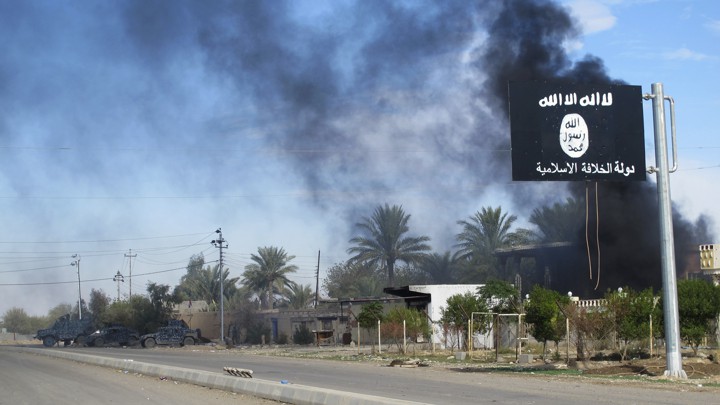The Atlantic | Aug. 26, 2018
The new recording released by the group’s leader suggested he’s looking to the past to chart a course for the group’s ultimate triumph.

The speech came amid reports of a resurgence by ISIS in Diyala, Salah ad-Din, and Kirkuk in Iraq, all areas the group lost some years ago; overall, the group has lost around 98 percent of the areas it once controlled. The speech also followed eyebrow-raising estimates by both the Pentagon and the United Nations that the group still has more than 30,000 fighters in Iraq and Syria. Affiliates in countries like Afghanistan and Egypt have also been noticeably more deadly and active in recent months. ISIS, in other words, has seemingly undergone an orderly transition from caliphate to insurgency without fracturing. In his speech, an emboldened Baghdadi drew on ISIS’s history—a small militia within a large network of insurgent groups waging war against Americans—to rally the faithful.
Aside from its preachy opening, Baghdadi’s speech charted a course for ISIS to regroup. In one key passage, he called for lone-actor attacks in Western countries, including bombings, car-rammings, and gun and knife attacks. Previously, such calls only came from ISIS’s former spokesman; coming from the self-styled caliph himself, they’re likely to carry more weight. Baghdadi even quantified his expectations: One attack in the West equals a thousand in the Middle East—a ratio that recalls the Irish Republican Army’s campaign of terror in Britain decades ago, which stipulated that one bomb in Britain was worth 100 in Northern Ireland. ISIS, like the violent Irish nationalists before it, knows that such attacks will garner more publicity and spark greater reaction than the slaughter of 200 Druze civilians in southern Syria or a car bombing in the heart of Baghdad.
